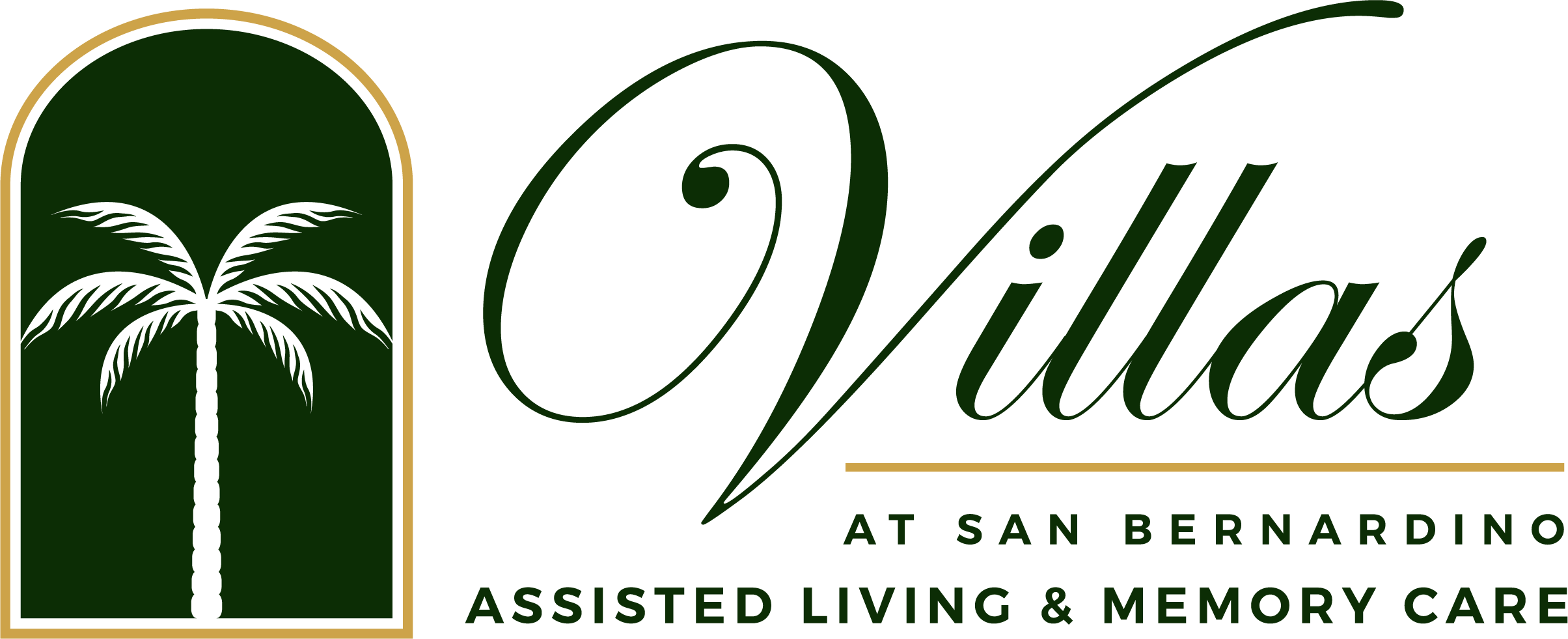Healthy Sugar Alternatives to Incorporate into Your Diet
Sugar has gotten a lot of bad rap these days, so there are now many sugar alternatives offered in the market. Unfortunately, sugar is difficult to avoid because it is present in so many foods and drink items from juices, desserts, processed foods, and the like. Even basic rice and bread have amounts of sugar in them.
Not all sugar is created equal. There are more complex sugars that are healthier than processed ones. For instance, black rice is a lot more nutritious than white polished rice that has higher sugar content. The older we become, the more conscious we should be about what we put in our mouths.
As a San Bernardino senior living facility and assisted living facility, we can tell you that the older generation must worry even more about their sugar intake as it has a significant impact on their health. With reduced organ functions, the older we are, the harder it is for our bodies to process sugar, which is why there is an increase in diabetes incidence in the elderly.
Thankfully, there are many sugar alternatives in the market. These sugar substitutes come in both natural and artificial forms. Having them around is convenient, especially if you have a sweet tooth. These sugar alternatives help us satisfy our cravings while helping us decrease the amount of sucrose or sugar in our diets.
The Impact of Sugar on Health
They have linked a high intake of sugar in our diets to a broad range of health issues. It can affect the body directly. It can also indirectly affect the body as it leads you to become overweight, or worse case, obese. Complications of having a high sugar diet are the following:
- The onset of diabetes, which is Type 2 or 1. Type 1 is insulin based that needs injections, while individuals with type 2 can still control the condition with oral medication.
- It can promote mild cognitive impairment. This is not plain forgetfulness in the elderly. A high sugar intake can affect the cognitive functions of the brain. Some studies show that excessive sugar can lead to dementia and Alzheimer’s disease.
- Too much sugar will lead to tooth decay and cavities. It can affect oral care, which if not heeded will lead to halitosis or bad breath.
- An excessive amount of sugar leads to obesity which results in high triglyceride or bad cholesterol levels. In the same token, the LDL or good cholesterol level is also compromised as it is brought down. Both are factors that contribute to heart disease, which can lead to a fatal heart attack.
- Poor nutrition is the by-product of consuming too much sugar. It leads you to become too full to eat a proper diet. At the same time, you’re feeding yourself the toxic stuff, which is alarming.
- Some studies indicate that a higher sugar diet will result in cancer.
As you can see, sugar is the culprit of many health problems. Thus, it is critical to start your children young and teach them to live a healthy lifestyle by making the right food choices. Everything begins at home, so it is the parent’s responsibility to make this happen.
As for those of us who have elderly parents that are more prone to succumbing to illnesses due in part to age and diet, we must be even more vigilant when it comes to offering them high quality food items. Those who live in an assisted living facility or memory care facility must always have access to sugar substitutes, so they can still eat something sweet without further compromising their health. Consider the following sugar alternatives below, which older people can incorporate in their diets.
Top Ten Healthy Sugar Alternatives
With an abundance of alternative sugar choices for sale in stores today, it can be quite confusing to decide which is right for us and our loved ones. One critical deciding factor in choosing which sugar substitute to use rests on the state of your health. To illustrate, someone who is diabetic cannot rely on the more honey or coconut sugar because it will still cause their blood sugar level to spike. Artificial sweeteners may be the better choice.
It is critical to comprehend the different types of sugar alternatives, so you can determine which is the best one that can meet the needs of your diet, especially the elderly. The Mayo Clinic notes there are four common types of sugar sweeteners. These sweeteners may fall under artificial, sugar alcohols, novel, and all natural. Furthermore, some of these are high intensity types of sweeteners. This means they offer more sweetness, without the additional calories. The ones listed below are the top ten alternative sugar choices that you can incorporate in your diet.
Acesulfame Potassium
This artificial sweeter doesn’t contribute to the decay of your teeth or raise your blood sugar level. The best part is this has almost no calories. You can use this for your coffee or tea. On top of that, Ace-K (K is the element symbol of potassium in the periodic table) is a heat-stable product, so you can use this for both cooking and baking.
This sugar substitute is about two hundred times sweeter than sugar, but it doesn’t have the same volume of regular sugar. If you use this in your kitchen concoctions, you must adjust your measurements to suit the taste of your product.
Some say, just like anything artificial, this product comes with its own potential health issues; however, the risk is minimal. For best results, not exceed the FDA’s recommended daily amount for your own personal consumption. Examples of these are Sunett and Sweet One.
Agave Nectar
This natural sweetener is a great choice because it scores low on the glycemic index, which means there are no unusual spikes in blood sugar, so it reduces your carvings. The caveat, however, contains large amounts of fructose. This amount is even greater than what you can find in high fructose corn syrup. Consuming too much of this can lead to weight gain. This may also increase insulin resistance, so this may not be the best choice for your elderly loved ones who have diabetes.
This product is sweeter than sugar, so a little goes a long way. This liquid has a long shelf life, and you can use it to cook your favorite cakes or puddings. It is akin to honey, but with no bitter after taste that you find in other sugar substitutes. In addition to that, if you’re going to use this for cooking, you must tweak the recipe as it may bother consistency because this is liquid.
Cocoa Sugar
This is an unrefined natural sweetener, so it can retain all its vitamins and minerals. There are not dangerous fluctuations in blood sugar levels with this product. Diabetics still need to ask their physician before incorporating this into their diet.
However, this has the same calories as regular sugar. You can use it as a one-to-one replacement for white or brown sure in cooking. It is a course product, so you’ll need to put these through a food processor before baking.
Honey
This is another natural sweetener, with raw honey containing less fructose than most agave. This is touted to be the only natural sweetener that has a load of other benefits. It has anti-inflammatory properties. It is anti-microbial and also good for the heart.
With that said, the body breaks down honey to glucose and fructose like regular sugar, so diabetics and those who want to lose weight must proceed with caution. Honey is a great accompaniment for smoothies, sauces, marinade, salad dressing, and baked goods. It can be sweeter than sugar, so reduce its amount for recipes that call for sugar.
Monk Fruit Extracts
This is a novel high intensity sweetener, so you don’t need to use a lot because it is 150 to 200 times sweeter than regular sugar. It is great if you’re cutting back on calorie consumption. With that said, commercial monk fruit extracts are mostly processed, so it may contain other sweeteners like sugar alcohols or sugar itself. Do your due diligence and read the label.
Others are sensitive to its aftertaste, so be cautious of using this in your baked goods. As with most high intensity sweeteners, you must fix the ratio if you intend to use this for your favorite recipes.
Date Paste
This is an all-natural alternative sugar you can make easily with a blender or food processor for your aging parents. Blend a cup of pitted dates, add 3/4 cup warm water, and 1/2 teaspoon of vanilla. Your concoction will work well with smoothies, baked goodies, dressings, marinades, and sauces, adjust to taste when using for your recipes.
Stevia Extracts
This is a novel high intensity sweetener that has no calories. It is great for diabetics and obese patients looking to reduce their weight. It is much sweeter than sugar, so reduce the amount in recipes.
This product is refined and comes in tablet, powder, or liquid form, so choose the best one that fits your baking or cooking requirements. Some don’t like its aftertaste, so try it first before using it for your coffee or tea. Popular stevia brands are PureVia, Truvia, and Rebiana.
Sucralose
Splenda is the most famous example of this artificial sweetener. It is 600 times more potent than regular sugar, and it has no calories. Diabetics and dieters love this product. There is actually a broad range of Splenda products in the market.
Since sucralose is unaffected by heat, this is great for cooking and baking. You can also add it to drinks and food as a table condiment. Use it sparingly because it is sweet.
Xylitol
This, along with sorbitol, and other sugar alcohols are 100 percent as sweet as sugar. The best part, these are lower in calories and do not promote tooth decay. On top of that, they don’t increase blood glucose. They do have a bit of influence on blood sugar levels, so diabetics must be careful and pay attention to their carbohydrate consumption.
On top of that, xylitol or birch sugar can have a laxative side effect when you use it excessively. This comes in granules, so you can use it like normal sugar. However, it is not advisable for sauces because xylitol doesn’t caramelize.
Some Tips for Reducing Sugar Consumption
Although it is hard to eliminate sugar from your or your elderly loved ones’ diets, you can still cut back on your sugar consumption. Here are some tips you may consider:
- Use sugar-free preserves with plain yogurt instead of eating regular yogurt.
- Ditch the processed desserts and reach for real fruit.
- Instead of chocolate, indulge in sugar-free hot cocoa.
- Say goodbye to candy and eat dried fruit.
- Buy the unsweetened version of everything like preserves, applesauce, peanut butter, etc.
- Add favors like vanilla or spices to create an illusion of sweetness into your tea and other beverages or food products.
With so many sugar alternatives in the market today, you don’t have to force your elderly loved ones to go cold turkey on giving up white sugar. Just do your own research to figure out which product best fits their needs. On top of that, advise them to follow these sugar reduction tips so they won’t suffer sugar spikes, they can curb cravings, and they won’t exacerbate their existing health issues.
The Commitment of the Villas at San Bernardino to Monitor Your Elderly Loved One’s Intake
Our caring staff members at our San Bernardino retirement home will monitor the food intake of your elderly loved one. We will regularly monitor those who chose to use our assisted living and memory care services. Furthermore, we have a complete menu line-up that’s not only healthy and nutritious, but they are delicious, too. We strive hard to meet the dietary needs of all our in-house elderly patients.
Apart from this, we offer socialization for all your elderly family members. After all, it is best to enjoy good food in the company of warm, loving friends. It is depressing for our older family to live alone, and here in our Villas at San Bernardino, we provide a holistic care approach to ensure that your elderly loved ones not only survive but more importantly, we want them to thrive. Get in touch with us today so we can show you our facilities. We are excited to welcome you into our family.





Leave a Reply